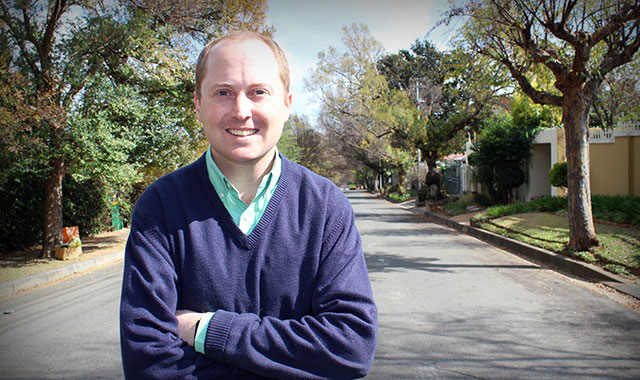 This week, remarkable news emerged from an upmarket Johannesburg suburb. The community of Parkhurst, through its residents’ association, announced it had issued a request for proposals from telecommunications service providers to connect all houses and businesses in the area to fibre-based broadband.
This week, remarkable news emerged from an upmarket Johannesburg suburb. The community of Parkhurst, through its residents’ association, announced it had issued a request for proposals from telecommunications service providers to connect all houses and businesses in the area to fibre-based broadband.
It appears many Parkhurst residents are gatvol with the state of broadband in their suburb. The area is far from a Telkom telephone exchange, meaning the broadband speeds they’re able to get over the fixed-line operator’s legacy copper network are poor.
So, residents are now taking matters into their own hands and plan to commission a service provider to build a broadband network in Parkhurst, one capable of offering connection speeds far in excess of anything available to home users in South Africa today — up to a blazing gigabit per second (that’s enough to download a feature-length film in a few seconds) for not much more than the cost of a high-end Telkom broadband service.
According to Ryan Hawthorne, one of the residents leading the initiative, the community has already received proposals that suggest that they could be offered 100Mbit/s line speeds for as little as R700/month, with data on top of that priced at just R2/GB.
There is going to be intense interest in the Parkhurst project: if the suburb gets it right, it’s likely that residents’ associations across the country will draw on its lessons and launch projects of their own. Big telecoms operators, including Vodacom, MTN and, yes, Telkom, are also all increasingly talking up fibre to the home (FTTH) as part of their future investment plans, though not one has yet pulled the trigger on a large-scale deployment. That gun could fire soon, marking the start of a race to wire up housing estates and well-to-do neighbourhoods (and eventually trickling down into suburbs right across South Africa’s urban centres).
It’s been a long time coming. For too long, the big commercial operators have lamented that FTTH in South Africa is simply not feasible. Unlike people in countries in Western Europe and Asia, South Africans live relatively far apart, often on big properties. Operators in places like Korea and Hong Kong were able to deliver high-speed fibre access because people live on top of each other — in rows of high-rise apartment blocks.
There is truth to this. Wiring up every house in Johannesburg’s Bryanston, with its large stands, would be more expensive, yes. But operators have failed to roll out FTTH in areas like Fourways, where people do live cheek by jowl.
It’s true, too, that FTTH is not a service that is likely to reach a majority of South Africans anytime soon, if ever. Most will continue be served (and fairly well) by mobile broadband. But wireless technology will never be able to match fibre optics for bandwidth-intensive applications — Netflix-type services, for example.
It’s encouraging, then, that South Africa’s two big mobile operators, MTN and Vodacom, are both now actively discussing how to do FTTH. Even Telkom, still married to its copper last mile, has begun a limited pilot of home fibre. It’s Vodacom that seems to be talking the most aggressively about FTTH for now, saying fibre to both the business and the home forms a big part of its motivation in tabling its R7bn offer to buy Neotel.

Neotel has not proved to be an effective competitor in the residential market, so it’s encouraging that Vodacom is promising — if its acquisition is given the green light — to invest the money needed to turn the company into the real “second national operator” to Telkom that South Africans were promised all those years ago.
As the big boys mull over how exactly they’re going to start tackling FTTH, it’s heartening that Parkhurst residents are taking the initiative. Their learnings will be widely studied and applied.
Communities that band together and demand FTTH are likely to get it first. Half the challenge is convincing residents of the need for it. If a suburb or community presents a united front, it greases the wheels for service providers to deploy infrastructure.
It’s difficult to overstate the significance of Parkhurst’s move.
- Duncan McLeod is editor of TechCentral. Find him on Twitter
- This column was first published in the Sunday Times




